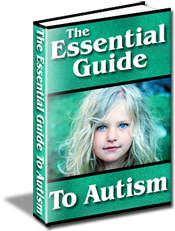Autism and Diet - What Are Your Options?
Click Here To Know The Simple Methods To Effectively Spot The 31 Signs of Autism
When, as parents, you hear your child has autism, the first response is usually one of shock even though you may have had concerns that led to the diagnosis. After the shock wears off, you?ll probably be looking for things that can help your child. Unfortunately, information regarding a cure or even the root cause of autism is not yet known, so many parents turn to differing treatment options and there are a number of theories that suggest there is a link between autism and diet. More specifically that a special diet called GFCF that might help children with autism in many ways.
GFCF stands for gluten free casein free. Following a GFCF diet means foods with those proteins are eliminated from your child?s daily diet. Sounds simple right? Well, unfortunately it?s actually pretty difficult to do.
The problem is that these proteins are commonly found in foods that most of us eat each day, and therefore the diet can be somewhat restrictive.
Casein is found most commonly in milk and milk products like ice cream and cheese that are made with milk. Gluten is found in grains and also in oats and barley. It is also found in soy products, and many additives that are put in foods for coloring, flavor, or as a preservative. Both these proteins also appear in other food sources as well meaning you have to become an avid label reader.
Though studies are on going, there is no conclusive link between the GFCF diet and improvement for autistic children just yet. However, what is known is that some autistic children find if very difficult to digest these types of proteins in the same way as others can, and can lead the body to treat them as if they are poisonous.
Having this reaction to these proteins might lead to problems with bloating, gas, and diarrhea. Some also believe that these have an impact on social and emotional problems that are very common in children and adults struggling with autism.
Before removing any foods in order to follow a GFCF diet, it is a good idea to get approval from a doctor. The doctor might want to keep a close eye on the child because many important nutritional elements like calcium might be missing from the diet once milk is removed.
There are other foods that can supplement calcium, and a doctor can help with adding foods back to replace what following such a diet can miss. Vitamins and minerals are important to any eating plan, and if they are lacking, a child will suffer in other ways.
Continue reading for more information about GFCF diets and sign up to the newsletter for additional information on managing autism with dietary changes.
Some parents? report astounding changes in both physical and emotional problems, while others say that nothing changed when trying the GFCF diet. There are some in the middle that say the elimination diet helped with one problem but not others. How each child will react cannot be known until the diet is tried.
However, before jumping in and restricting your child?s diet to see if there is a link between autism and diet, parents should talk to the doctor and remember that the results for other families have been mixed. As long as a physician is overseeing the diet, and the child is receiving regular check ups, there should be no harm in trying the diet to see if it works.
By Rachel Evans. Sign up for a free newsletter for more information on autism. In the newsletter you'll find out more about the signs and symptoms of autism.
Labels: autism_child_in_sign, autism_disorder_spectrum, autism_in_sign_toddler, autism_seroquel, autism_zyprexa

